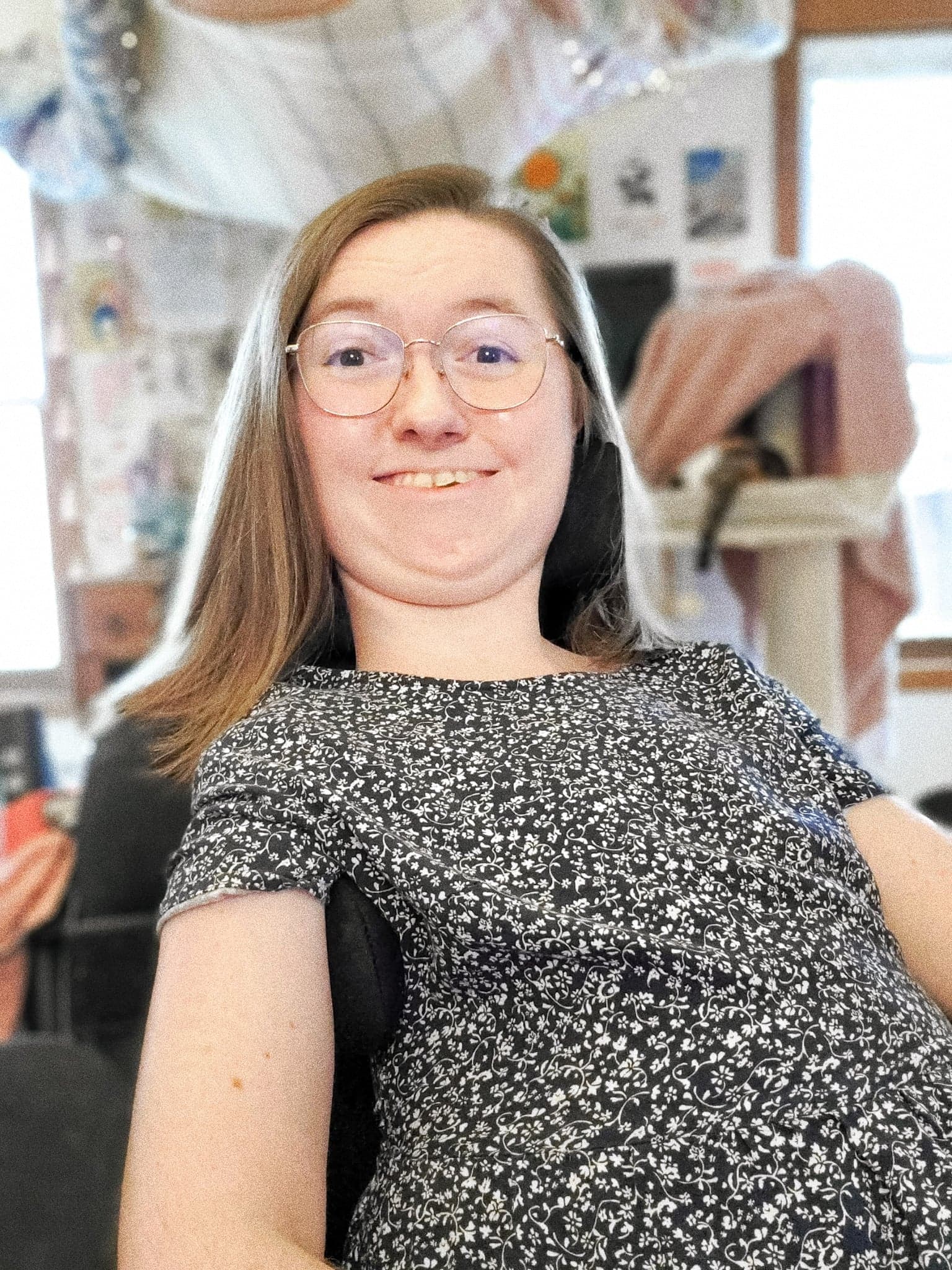Amber-Joi
Empowered by possibility

When I tell people that Céline has SMA, they often say things like, "I'm so sorry, that must be so hard for you." But for me, the truth is that I'm comfortable and happy with the busy life that comes along with being an SMA mom. Of course, when I first got the news, it was an extremely difficult time, to say the least. However, at this point, I have completely accepted Céline's diagnosis and have adjusted.
“SMA is a part of who Céline is. It will always be a part of her and I love everything about her.”
I don't think about her diagnosis much from day to day. We've made many modifications to our everyday life, but it's second nature at this point. Céline does just about everything a typical child would do (albeit differently), and she fully enjoys life. I love my life as her mom. She is happy, and that makes me happy.
With that said, she does have limitations due to her disability. For the most part, she seems completely unbothered by her constraints, but there are some days that are hard for us. There are days when she falls a lot, and I constantly have to pick her up because she can't get up on her own yet. There are activities that she simply can not do, no matter how much I try to make them accessible. There are times when she is frustrated. And I get frustrated too.
There are also times when I worry about her future. But these are feelings that every parent feels, whether their child has SMA or not. Frustration, confusion and fear are part of parenting. That's the first thing I remind myself when I feel down - that these feelings are a natural part of life that I should not focus on because there is no room in my day, and they do not serve me. Those negative feelings make my job as a mom even harder, and I simply don't have time for them.
I choose to focus on the positive and the possibilities. Usually, I can will my thoughts into a positive space on my own. But sometimes, that's just not enough, and the negative thoughts loom. In those moments, I lean on my support system. For instance, my husband reminds me that we are fortunate enough to be facing SMA in a time where so much more is known about how to manage the disease than in the past. My best friend also assures me that I'm doing a great job and that Céline has come a long way. At times, I turn to my iPhone, where I have an album of Céline's milestones since her diagnosis.
When you're in this journey day in and day out, as I am, it can be hard to see all that we have overcome, and how much has changed. But when I am able to see pictures and videos of Céline through the months and years, it reminds me that she is remarkable.
“Nothing motivates me and lifts my spirits more than my daughter. I get my inspiration from her. She helps me focus on the possibilities.”


